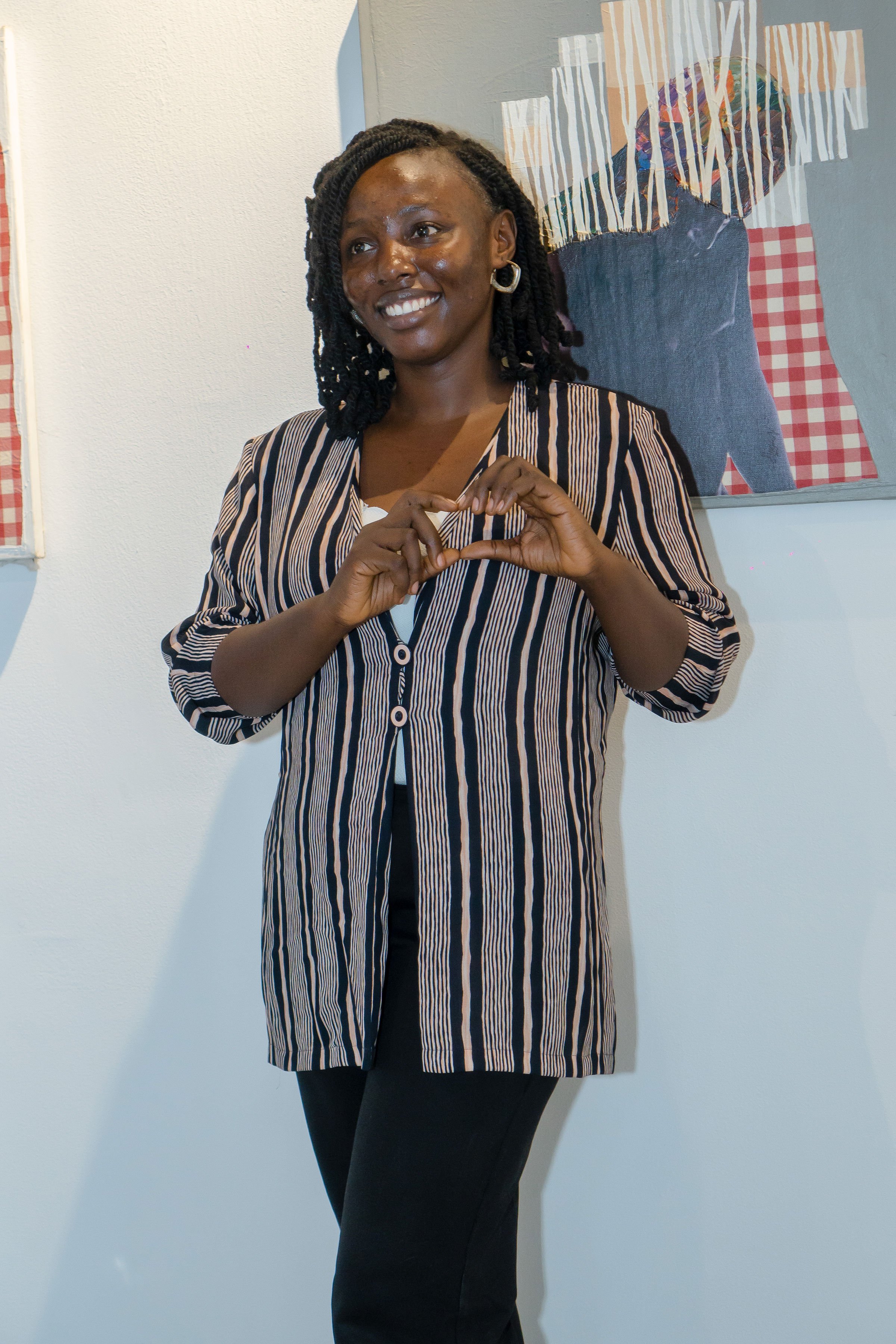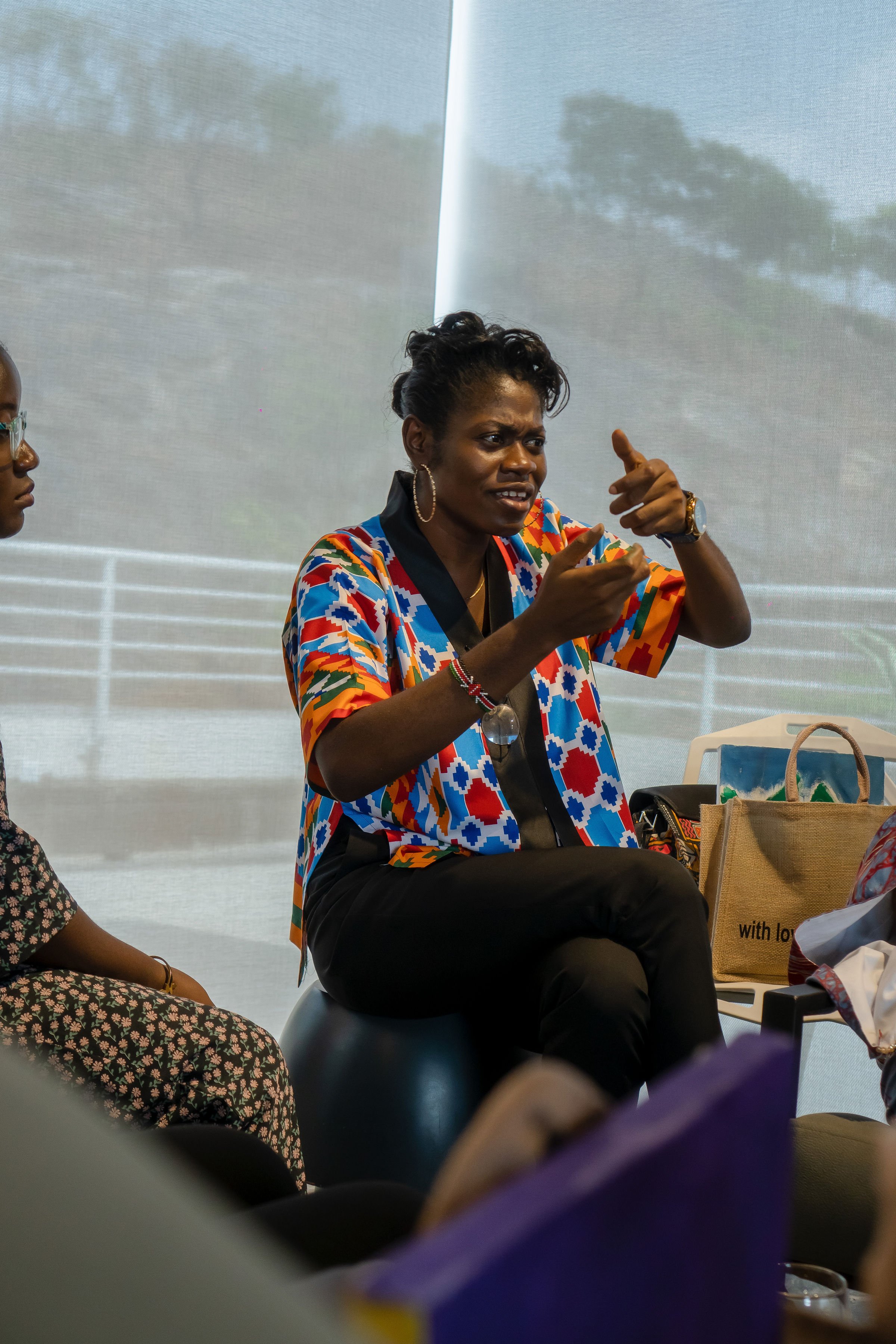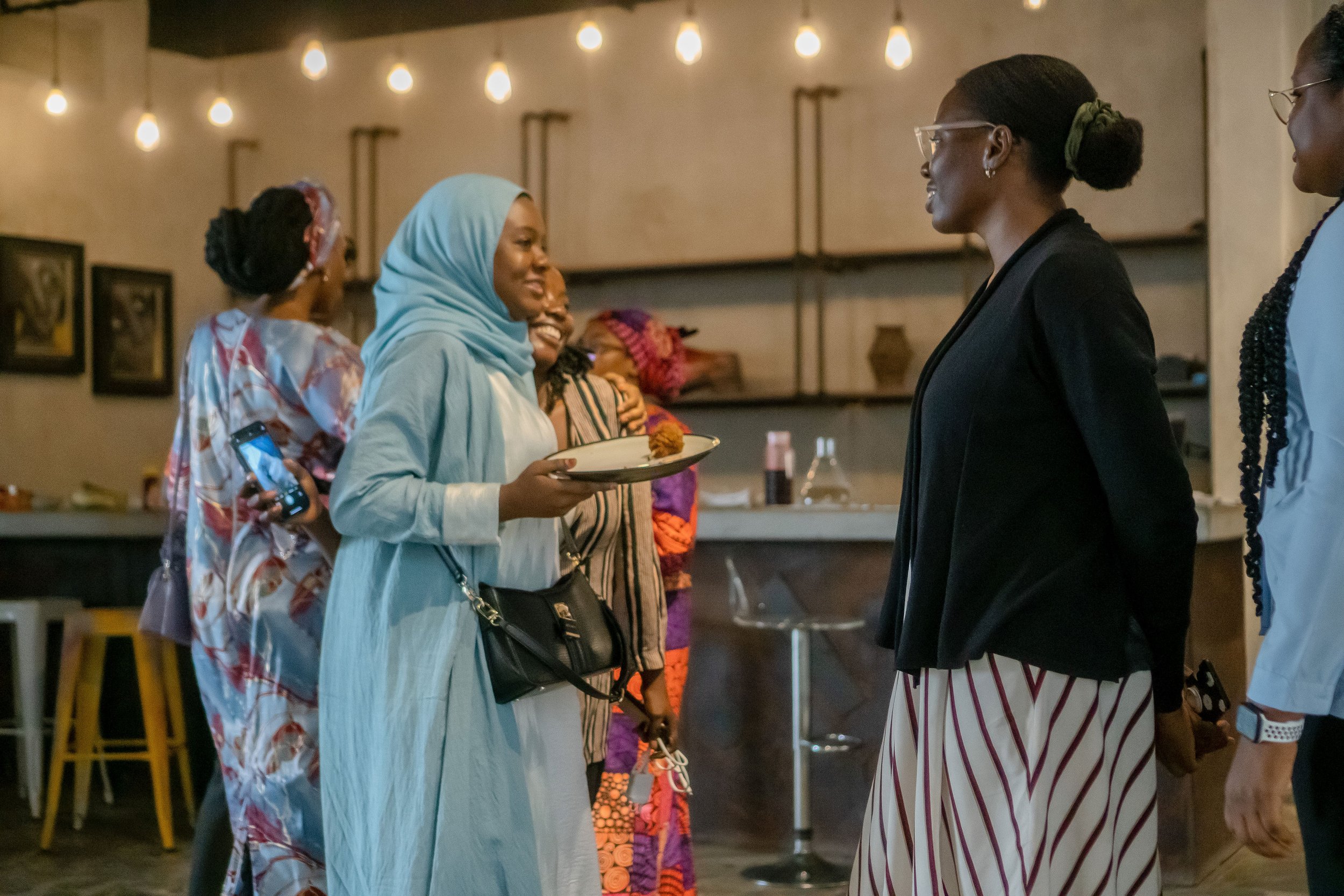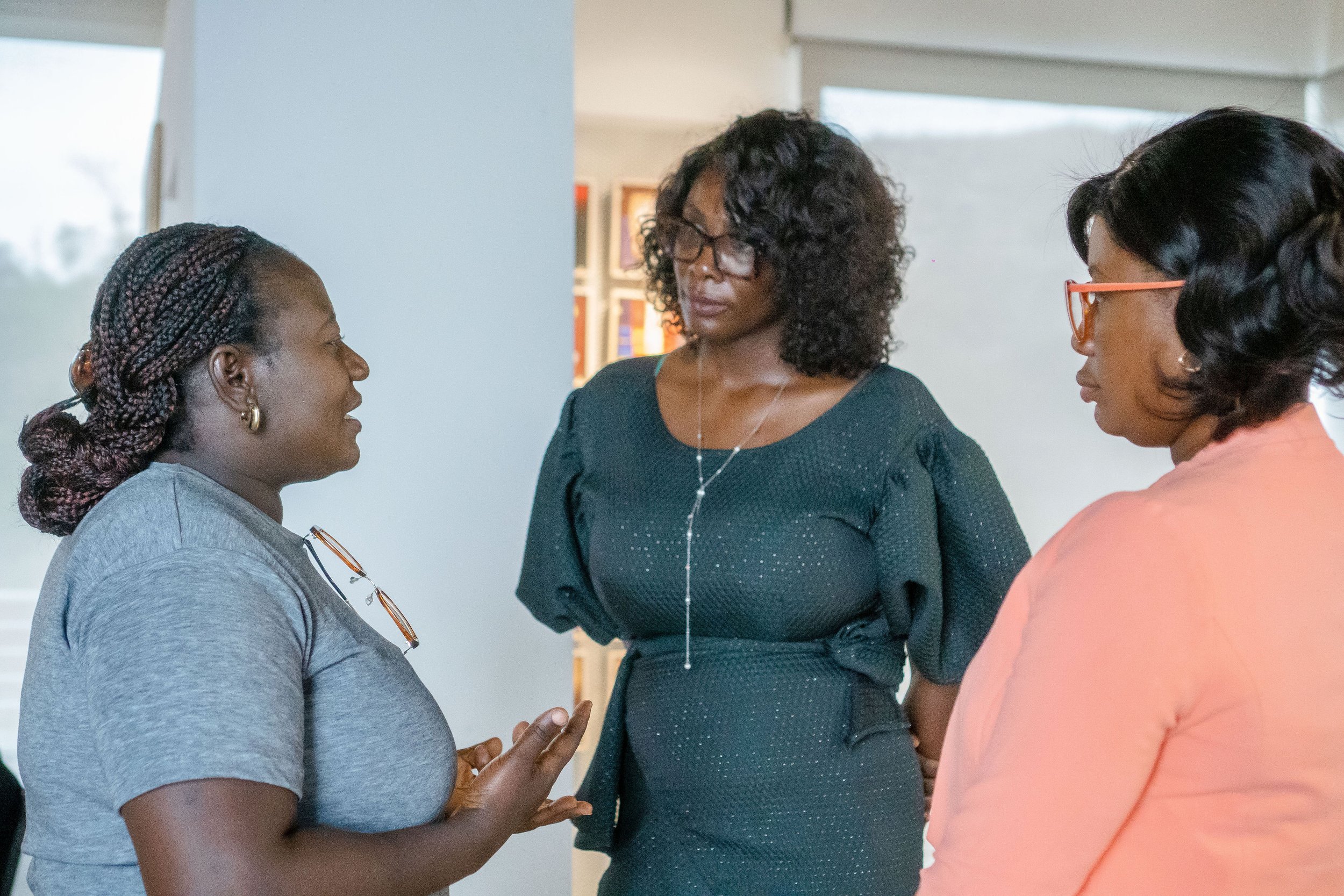WiC Event: 5 Areas Women Need More Inclusiveness in Driving Climate Solutions in Nigeria
Participants at the Women in Climate event hosted by Surge Africa on IWD 24
Introduction
Climate change remains one of the most compelling challenges of our time, and its impacts are felt by women, particularly in developing countries where they often have limited access to resources and decision-making processes. Women and girls experience the most severe impacts of climate change, which amplifies existing gender inequalities and poses significant threats to their livelihoods, health, and safety. A recent UN Women Report revealed that by 2050, climate change may push up to 158 million more women and girls into poverty and see 236 million more face food insecurity.
Moreover, women make up 49.7% of the global population, yet they are often ignored in discussions that affect their quality of living. But women are also crucial frontline agents of change in the fight against climate change and their inclusion in climate action is essential for building a more sustainable and resilient future.
At Surge Africa, we recognize the pivotal role of women in climate action. To mark International Women's Day (IWD) themed ‘Invest in Women: Accelerate progress,’ we held a Women in Climate (WiC) event, bringing together women leaders in the climate space to driven strategic change in their respective domains, lead informal discussions on leadership, access and equality, and the importance of building communities in the space.
Here are five key areas where women need more inclusiveness and investment in tackling climate change, according to women climate leaders in Nigeria:
1. Taking Up Space in Climate Decision-Making and Policy Development
Globally, women are more often than not underrepresented in decision-making processes related to climate change at all levels at local communities, national and international negotiations. Amplifying women's participation in decision-making processes creates an essential foundation for inclusive initiatives and policies that address the unique needs of women.
A 2019 study published in the European Journal of Political Economy revealed that increasing women’s representation in national parliaments leads to the adoption of more stringent climate change policies, resulting in lower emissions.
Habiba Ali, CEO of Sosai Renewables Energies remarked, "Women need to be in the rooms when climate decisions and policies are agreed upon. It should be rooms where we have actual power and influence to drive inclusive climate policies. We don't need favours for representation.”
As a country, Nigeria does not yet have strong female representation in not just climate oriented decision-making spaces, but all other equally important spaces that concern female development and welfare. Ali emphasized that, “We require stronger policies for women representation that crosses every aspect of society."
These policies must not just be stronger, but implementable and implementation is often about political willpower. Placing gender equality at the center of climate change solutions in Nigeria means integrating diverse gender perspectives across holistic and enduring climate, environmental, and disaster risk reduction policies and programmes. Women must be dangerously and unapologetically ready to take up space in championing climate impact issues and solutions at all levels.
2. Women Collaboration to Foster Interconnected Climate Solutions
There is progressively more evidence that gender equality is key to tackling the growing risks posed by climate change yearly and while women, especially indigenous women in the global south, are leading frontline climate action and advocacy, they are underrepresented in environmental decision-making at all levels.
Women across various sectors, including scientists, philanthropists, legislators, grassroot leaders, and CEOs of climate solutions businesses, are actively working to mitigate the impacts of climate change. However, women climate leaders have called for them to build and enhance their networking communities to drive innovation in addressing climate challenges.
Tsema Ede, Lawyer/Project Lead for Human Rights Fund passionately said, "Women in climate must be reminded that we needn't go on the journey alone. Community is critical to the work that we do. So, how do we build a community and strengthen that community? We need to collaborate on the respective climate sectors that we operate in."
Ede and other participants believe that women need to band together to create a much more robust, Interconnected, responsive network globally. In the Global South, such collaborations fall short of what is needed. By creating a diverse network of climate women leaders, opportunities for inclusive conversations are made and mobilization of collaborative action that supports their work is established.
Ruth Tene, the Publisher of EarthNews Media echoed on collaboration as a tool for renewing the environment. She said, "Women are at the forefront of climate issues. When women come together to form communities, they will better engage the Nigerian society to protect our environment. Women collaboration can set the agenda towards revamping and renewing our environment. We need more women to take the lead."
Collaborative networks are instrumental in empowering women's collective voice and interdisciplinary expertise in advocating for inclusive and intersectional climate-focused policies on national, local and international levels.
3. Women Climate Leaders Need More Recognition and Visibility
Women leaders championing climate action often contend with having their contributions acknowledged and valued. This is a particular issue in the global south where biases about women's contributions in the environmental space and other spaces are paramount. By actively recognizing their achievements and highlighting their work, we can honour their efforts and inspire other women to pursue leadership roles in addressing climate change.
Celebrating the works of women leaders helps challenge stereotypes and biases about gender roles in environmental leadership. It shows that women are highly capable of making significant contributions to climate action and leading positive change in their communities and beyond.
Esther Nuhu, a Climate Researcher and PhD candidate, opined that removing stereotypes and biases will create a ripple effect of positive change in climate change. She said, “When stereotypes and biases against women leaders in climate, especially in Africa, are removed, their work gets the recognition it deserves. This means people will see and appreciate their contributions more fairly. With barriers removed, they’ll have a better chance to showcase their skills and ideas, which can lead to more support and resources. Also, when women get the spotlight they deserve, it inspires others to follow in their footsteps, creating a ripple effect of positive change in climate action.”
Participants at the WiC event unanimously agreed that there's a huge data gap in Nigeria with regards to what women leaders are doing in climate change. Works by women leaders in climate change should be made visible to serve as a powerful inspirational tool. By doing so, we can invite and build more women to take up leadership roles in climate change.
4. Gender Responsive Climate Finance and Investment
Women frequently face barriers in accessing financing for climate-resilient agriculture, clean energy solutions, and disaster preparedness. Including women in financial decision-making ensures those who need resources most have access to them and promote sustainable, community-driven projects. This increases climate resilience and yields better impacts, but the financial support to tackle the challenges and properly utilize women's contributions in addressing the climate emergency is terribly lacking.
At the 2023 United Nations Conference of the Parties (COP28) held in Dubai, Sima Bahous, Executive Director of UN Women and Under-Secretary-General of the United Nations raised an alarm on climate finance for women. She said, “It is alarming that only 0.01% of global finance supports projects that address both climate and women’s rights.” In light of this, 2024's COP29 in Azerbaijan will focus on unlocking the much needed finance for climate action, including gender-responsive action.
Nigeria, for instance, requires more provision for targeted support towards projects and programs that benefit women, such as sustainable agriculture, clean energy solutions and community-based adaptation measures that aligns with the National Gender Policy on Gender and Climate. While the Action Plan prioritizes Agriculture, Forestry and Land Use, Food Security, Health, Energy, Transport, Waste Management.
Dr. Bilkisu Hadejia, a Research and Outreach Consultant said, “Gender-sensitive climate finance and investment are pivotal in enhancing resilience, community outcomes, and sustainability, particularly amid the challenges posed by climate change. By ensuring equitable access to financial resources for women and men, socio-political disparities that undermine communities' ability to withstand the impacts of climate change can be rectified.” Dr. Hadejia cited African countries taking the lead in gender responsive climate finance. She said, “Gambia runs initiatives providing agricultural funding and credit specifically to women to advance circular agricultural systems and Kenya largely provides access for women to secure financial resources within the private sector, including support for startups and enhancing resilience to climate change.”
By infusing gender considerations into climate finance strategies, nations can cultivate more resilient and sustainable communities, where both women and men can contribute to and reap the benefits of climate-related investments and endeavours.
5. Promoting Gender Equality in Climate Data Collection and Analysis
Gender data is vital for advancing gender-responsive climate action under the Paris Agreement. Such data can help shed light on the unique and often disproportionate impacts of climate change for women and girls as well as their contributions to climate change mitigation, adaptation, and resilience, according to a policy brief by Data2X and the International Institute for Sustainable Development (IISD).
Enogba Ende, Capacity Lead for Ilimi Africa, emphasized on the importance of gender climate data in a vulnerable country like Nigeria. She said, “The essence of Climate data collection and analysis is to make informed decisions on inclusive climate action and to drive policy implementation in a gender-responsive manner and while we are aware of the existing gender disparities across different sectors in Nigeria, climate crisis impacts women and girls on a much greater scale.”
Unfortunately, climate data collection and analysis often overlook gendered differences in vulnerabilities and impacts, thus leaving those groups to more severe climate change disasters. Including women in data collection efforts and ensuring gender disaggregated data allows for a deeper understanding of climate risks and leads to the development of properly targeted solutions.
Despite the gender data gap in Nigeria, Ende called for more to be done and harped on its transformational power. She said, “It is crucial to assess the impact of climate change on women and men by conducting a gender analysis as this helps to identify where the inequality and gender gaps exist and where to take relevant measures. Promoting gender equality in climate data analysis will foster the transformation required to address climate change for a just, sustainable, and livable planet for all.”
Nations must have gender data collection that include multiple levels of disaggregation to capture differences based on income, age, race, disability, sexual orientation and geographic location, among others. This would allow for the identification of gender-related gaps and challenges, allowing policymakers to effectively identify, define and scope problems.
Final Thoughts
By investing in women and girls, we create a ripple effect that yields multiple benefits, not only for individual women, but also for families, communities and countries. We can accelerate progress, promote gender equality, and empower women to contribute more significantly to economic, social and cultural development. We believe that when women are empowered to be leaders, innovators, and changemakers, we can truly achieve a more equitable and effective response to climate change.






